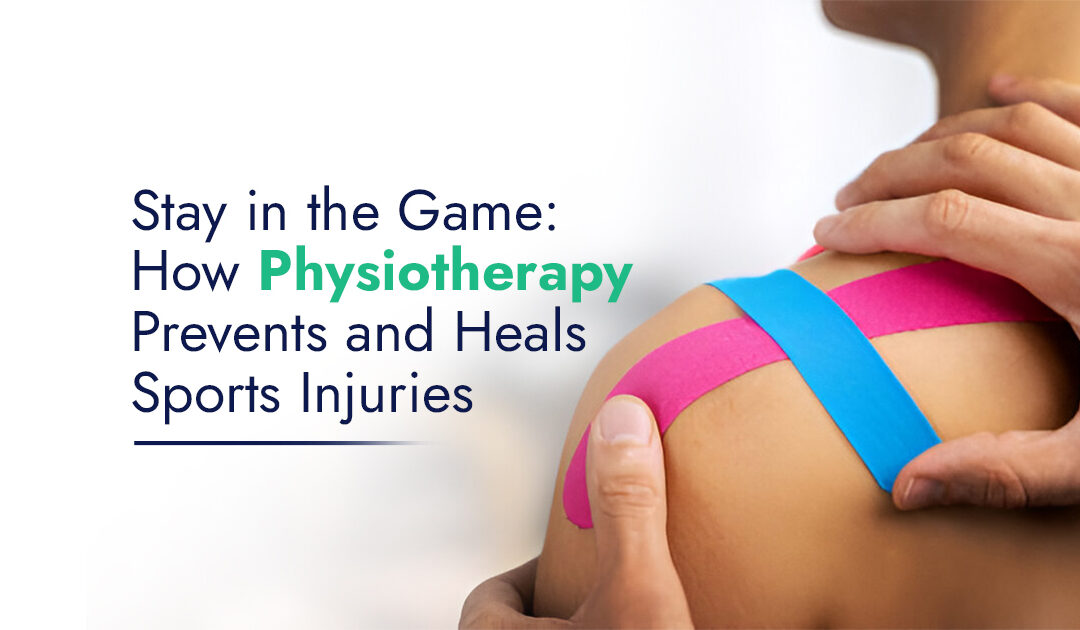If you’re an athlete or someone who regularly engages in physical activity, chances are you’ve experienced a strain, sprain, or injury at some point. While injuries can feel inevitable, physiotherapy offers preventive measures that help reduce the likelihood of getting hurt in the first place. But how exactly does it work? Let’s dive in.
1. Injury Risk Assessment
Physiotherapy begins with a detailed injury risk assessment. This evaluation is crucial because it pinpoints potential problem areas—whether it’s muscle imbalances, limited flexibility, or improper biomechanics—that could lead to injury. By understanding your body’s unique vulnerabilities, a physiotherapist can create a customized plan to address these weak spots.
2. Personalized Exercise Programs
No two athletes are the same, and neither are their exercise needs. Physiotherapists design personalized exercise programs that focus on improving stability, strength, and flexibility. These programs may include:
- Warm-up exercises to prepare your muscles and joints for activity, reducing the risk of sprains and strains.
- Stretching techniques to improve your range of motion and overall flexibility.
- Strengthening exercises to reinforce muscles and joints, particularly those more prone to injury.
3. Education and Injury Prevention Techniques
Physiotherapy isn’t just about exercises—it’s about learning how to prevent future injuries. Athletes are taught proper workout techniques, body mechanics, and recovery strategies. When incorporated into daily routines, these techniques can help athletes improve performance and lower the risk of injury significantly.
The Role of Physiotherapy in Sports Injury Rehabilitation
Despite our best efforts to prevent them, injuries can still happen. When they do, physiotherapy plays a crucial role in rehabilitation, ensuring athletes recover fully and get back to their sport safely. The rehabilitation process usually consists of three stages:
1. The Acute Stage
The acute stage starts immediately after an injury and can last from a few days to a week. At this point, the focus is on managing pain and reducing inflammation. Common physiotherapy treatments during this stage include:
- Ice therapy
- Compression and elevation
- Rest and immobilization
2. The Subacute Stage
Once the initial pain and swelling subside, the subacute stage begins. This phase can last several weeks, with the primary goal of restoring movement and gently reintroducing activity. During this stage, physiotherapy might involve:
- Joint mobilization to improve movement
- Light stretching and range-of-motion exercises
- Strengthening exercises to rebuild muscle
3. The Chronic Stage
The final stage, known as the chronic stage, focuses on advanced rehabilitation. At this point, athletes are working toward regaining full strength, function, and performance. This phase can last several months and typically includes:
- High-intensity strengthening exercises
- Sport-specific drills
- Cardiovascular fitness exercises to restore stamina
Why Individualized Physiotherapy Matters
Every injury is different, which is why one-size-fits-all treatments don’t work. Physiotherapists regularly reassess an athlete’s progress and adapt their rehabilitation programs accordingly. Here’s why this individualized approach is so effective:
- Regular Assessments: Continuous evaluations help ensure that the rehabilitation process stays on track.
- Goal Setting: Clear short-term and long-term goals keep athletes motivated and focused.
- Education: Athletes are empowered with knowledge about their injury, recovery, and how to prevent future injuries, making them active participants in their healing.
By personalizing the treatment process, physiotherapy not only helps athletes recover but also builds their confidence, enabling them to return to their sport stronger and with a lower risk of re-injury.
Ready to Recover? Visit Dr. Anil’s Physiotherapy Clinic
At Dr. Anil’s Physiotherapy Clinic, we believe in empowering our patients. We provide the tools, guidance, and personalized care necessary for you to take an active role in your recovery and long-term health. Whether you’re dealing with an existing sports injury or looking to prevent one, our team is here to help.
Book an appointment today and start your journey toward better health and performance!

